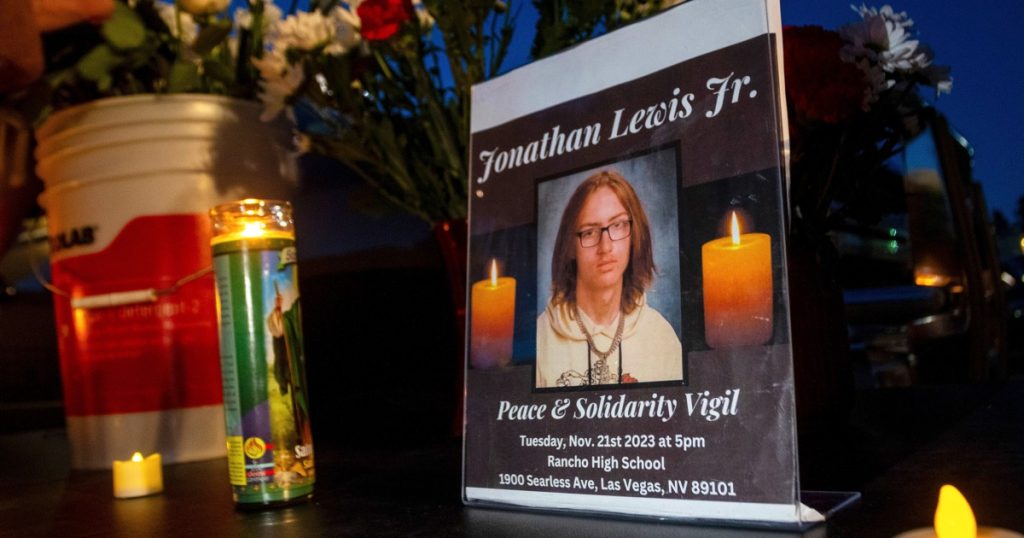Four teenagers in Las Vegas pleaded guilty to voluntary manslaughter in the fatal beating of their high school classmate, Jonathan Lewis Jr., as part of a deal with prosecutors to avoid being tried as adults. Originally charged with second-degree murder and conspiracy, the teens now face incarceration at a juvenile detention center for an undetermined period of time. In Clark County, minors prosecuted in juvenile court do not face traditional jail or prison sentences but are released after completing rehabilitation programs.
The attack on Lewis was captured on cellphone video and shared widely on social media. Defense lawyer Robert Draskovich, representing one of the teens, called the plea deal a “very fair resolution.” However, Lewis’ mother, Mellisa Ready, expressed dissatisfaction with the lack of true accountability and punishment for her son’s murder. The District Attorney’s office defended the resolution as addressing the egregious facts and potential legal challenges that would have arisen at trial. They also emphasized that the juvenile court system provides resources for rehabilitation.
Due to Nevada law, teenagers facing murder charges can be charged as adults if they were 13 or older at the time of the crime. The incident stemmed from a dispute over a vape pen and wireless headphones stolen from Lewis’ friend, leading to a confrontation in an alley near Rancho High School. Lewis succumbed to his injuries six days after the attack. A homicide detective revealed that video evidence showed Lewis throwing a punch at one of the students before being pulled to the ground and assaulted by the suspects. The brutal assault resulted in Lewis being punched, kicked, and stomped on.
The teens involved in the attack have not been identified due to being minors at the time of the incident on November 1, 2023. While they will serve time in a juvenile detention center, their ultimate release will be contingent on completing rehabilitation programs. Lewis’ tragic death has sparked a debate over the justice system’s handling of juvenile offenders and the accountability they face for their actions. Despite the plea deal, Lewis’ mother continues to advocate for more severe punishment for those responsible for her son’s murder, expressing her disapproval of the current resolution.
Authorities have acknowledged that the students’ violent actions led to Lewis’ untimely demise, shedding light on the consequences of teenage conflicts escalating to extreme violence. The case highlights the importance of addressing juvenile offenders’ behaviors early on to prevent future criminal activity and rehabilitation opportunities. The decision to prosecute the teens in juvenile court reflects an approach that emphasizes rehabilitation over punitive measures for young offenders. Ultimately, the tragic loss of Jonathan Lewis Jr. serves as a sobering reminder of the devastating impact of youth violence and the need for comprehensive support systems for at-risk teenagers.


